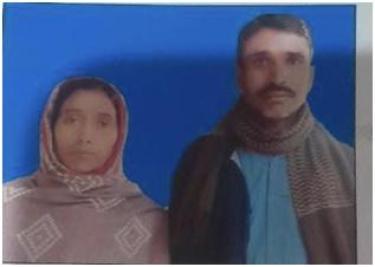On the morning of Friday, the 2nd of June, three migrant workers from Birbhum, Sanaul Sheikh (29), Rafikul Sheikh (28) and Shanto Sheikh (40) left their respective homes in Kanakpur village to return to their daily-wage-work in Chennai in the ill-fated Coromandel express.
All of them were sole earning members of their families and multiple younger siblings. Rafikul is also responsible for his disabled sibling, along with his wife, children, and other members of the family. On the same day, Kanaipur’s Amarnath Mudi (23) left home in search of work in Chennai. After the horrific three-train-crash in Odisha, each of their family members spent the next few harrowing days, trying to locate their whereabouts.
India is still shaken by the tragic train accident in Odisha, that has reportedly killed over 290 people and multiple families are still waiting for the missing bodies of their loved ones. As per reports from The Wire, South 24 Parganas district has witnessed the highest number of casualties of migrant workers from Bengal, with the number of deceased having already crossed 27, and more than 19 people are still missing. The report aptly points out “the dire situation in rural Bengal, where pervasive corruption and lack of job opportunities push people to seek better fortune elsewhere. Despite the risks involved, year after year, the lure of slightly better prospects compels them to board south-bound trains.” For years, our work at CJP and Bangla Sanskriti Mancha has pointed out these problems that thousands of rural migrant workers, and their families, dealing with unemployment or lack of state-sanctioned-infrastructure to protect their rights, have been going through.
When we reached Rafikul Sheikh’s house in Kanakpur the next day, representing CJP and Bangla Sanskriti Mancha, his family was visibly devastated. His sister Beli Bibi told us, “My brother works hard to send money to his family. He has three kids, his wife, all of us brothers and sisters are dependent on him financially. We have not been able to function at all, our brothers are running from pillar to post trying to find him, but to no avail. I request the Government to help us.”

Sanaul Sheikh’s wife has been inconsolable for three days straight, she has refused to take a single morsel of food and spent two nights without any sleep. She breaks down even before she can complete a sentence, “All I want is for my husband to return home now.” Block development officer Nazir Ali and Police station officer of Paikar, Kabul Ali Saud, visited these workers’ houses in Kanakpur on Saturday and promised to do their best to get their information as soon as possible.
On Sunday afternoon, Shanta’s neighbours had gathered around the house. One of them says, “Shanta is a hardworking man. He spends months working for his family. This is very heart-breaking. I don’t know what will happen to the family if something happens to him. But why is it taking so long for them to be identified? Even though Paikar’s Officer-in-charge and Block Development Officer visited their houses, they still haven’t been able to get any information about them.”
Tragically, as of today, all four of them, Rafikul Sheikh, Amarnath Mudi, Sanaul Sheikh and Shanta Sheikh have been identified as deceased, as per the administrative reports. The bodies of Rafikul and Sanaul have been identified and they are being brought home. Shanta’s body is yet to be handed over to the family as a DNA test has not been done.
Below are the photographs of the deceased Amarnath Mudi, Sanaul Sheikh and Shanta Sheikh

Sanaul Sheikh

Sanaul Sheikh’s wife

Shanta Sheikh

Amarnath Mudi
We visited the houses of Rafikul, Shanta and Sanaul in Kanakpur, with relief on Sunday, representing CJP and BSM. We have promised to stand by them and provide any help necessary. Later, we travelled to Kanaipur and visited Amarnath Mudi’s house to assure them of our continued support through these harrowing times.

Team CJP and Bangla Sanskriti Mancha on their way to the victims’ families
Our continuous work for the rights of migrant workers has enabled us to build a strong connection in the remotest areas of rural Bengal, to reach as many migrant workers’ families as possible. In the darkest of times such as these, what’s most important is to stand by those who need our presence and assurance every step of the way. Be it official paperwork in the coming days or financial relief for the impoverished families, our organisations are hard at work to provide some comfort to these people, who are currently facing the ultimate test of human life.
Related:
Young migrant worker held by Police in Chennai, CJP comes to the rescue
Teen migrant labour goes missing | How is the system failing them?
New offices to address migrant labour issues in Bengal, workers express relief
The strange case of the disappearance of two migrant workers, CJP intervenes
